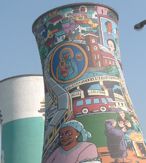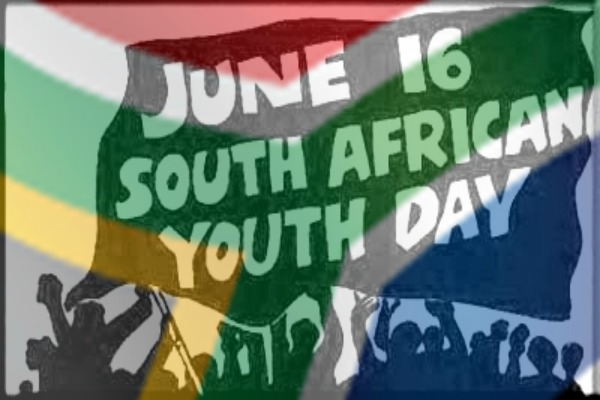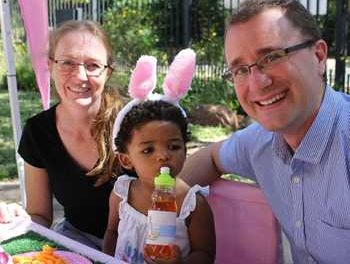A SEE – JUDGE – ACT family reflection activity.

Is it not true that protests so often begin with idealism, a hopeful dream, that can lead to activism which is a positive response, unless it leads to nihilism, a destructive outcome on a range of counts? Was Jesus and was St Francis an idealist, and/or an activist? Where would they position themselves today?
SEE. The youth of 1976, 45 years ago, are today’s parents but many are also grandparents. With MARFAM’s June theme, “Children belong in families,” in mind, consider how these generations of old and young relate from the context of the events of 1976. Have the elders shared their story with the young and listened to their views of today? It was a time of overall political conflict and struggle, but on that day young learners took the initiative away from their parents. They took to the streets to protest about an educational issue important for them, teaching in Afrikaans. We know how instead of a peaceful protest march it became a massacre. How many of today’s various protest marches than may begin as a peaceful demonstrations turn violent and for what reasons? What, if anything has changed?
JUDGE: History of protests. A Wikipedia article https://en.wikipedia.org/wiki/Protest is an enlightening resource for useful reflection and discussion. It begins with a definition. A protest (also called a demonstration or remonstration ) is a public expression of objection, disapproval or dissent towards an idea or action, typically a political one.
It continues with interesting insights and includes examples of major protests, many of which were political, from the 16th century until today. Historically, protests have been held around rights and abuse of women, race and civil rights, religion, farmers, workers, children and education and a vast range of political issues to do with aspects of service delivery. War, nuclear armament and most recently environmental issues, the right to life, treatment of foreigners and refugees, resistance even to protective lock-down restrictions continue. These public protests voice complaints, make opinions heard or may enforce a direct action.
Where protests are part of a systematic and peaceful nonviolent campaign to achieve a particular objective, and involve the use of pressure as well as persuasion, they go beyond mere protest and may be better described as cases of civil resistance or nonviolent resistance. Observers have noted an increased militarization or protest policing in many countries. Statements of non-negotiable demands often accompany protests which can easily inflame both protesters’ and recipients’ feelings. One study found that non-violent activism during the civil rights movement in the United States tended to produce favorable media coverage and changes in public opinion but violent protests tended to generate unfavorable media coverage that generated public desire to restore law and order.

Protests, or marches, in our society today appear to have become almost an institution. Disgruntled citizens on a range of issues resort to a march which too often includes rowdiness, hooliganism, looting and damage to property. Infringement on the rights of other citizens becomes a norm. Questions to ask then about today’s experience of protests is who is responsible for any violence, who instigates, provokes and initiates it? Has our society overall become increasingly violent and sees protest as an outlet for frustration without first being open to negotiation.
June 16 1976 was a redletter day, a turning point in South African history and it might be of value to reflect and if appropriate share “where was I on that day?” Of course as ours is a young country and more than 50% of our people are below the age of 30 they have no personal knowledge and many hardly have any insight into 1994.
ACT. Families have an essential role to play in the lives of their children which Pope Francis speaks about in all his recent documents especially Amoris Laetitia, Christus Vivit, and Fratelli Tutti. Families are the first place where the values of love and fraternity, togetherness, sharing, concern and care of others are lived out and passed on. FT 114. He refers to the importance of historical consciousness. AL193. Grandparents need to share their stories. An often neglected aspect is the importance of fathers. Of the youth of 1976 many were young men some of whom gave their lives for a cause. Today one of the most important causes for young men to adopt is to be a father to their children – a commitment to be considered as we commemorate FATHERS DAY on 20 June. Pope Francis: The real question is not where our children are physically or whom they are with but rather where they are existentially, where they stand in terms of their convictions, goals, desires and dreams. Each child will surprise us with ideas and projects born of that freedom which challenges us to rethink our own ideas. Education involves forming persons who readily understand that their own lives and the life of the community are in their hands and that freedom is itself a great gift. AL261-2

However, is it for us, elders, only to teach or also to listen, to understand the aspirations and dreams of the young and allow them to share their idealism against our realism and possible cynicism. Our own reflection and sharing as elders could be a healing one, as we carry out an important duty to bring them to Jesus and introduce them to Mary, his Mother, and St Francis all of whom were idealists, activists and realists too. Pope Francis tells youth in his letter Christus Vivit, to young people and to the entire people of God: sheer vitality and strength of personality combine in the hearts of young people to make them constantly aim higher. This exuberance will be tempered by time and painful experiences but it is important for this youthful and still untested yearning for the infinite to encounter unconditional friendship that Jesus offers. CV190. TR FAMILY WEEKLY 16 JUNE 2021







Recent Comments